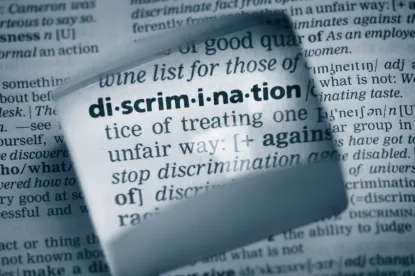We knew this question would be asked. On Sept. 7, a petition was filed in this country’s highest court, asking it to settle the ongoing debate of whether Title VII’s prohibition against sex discrimination includes discrimination based on sexual orientation.
The U.S. Court of Appeals for the Eleventh Circuit case, Jameka K. Evans v. Georgia Regional Hospital, et al., involves a gay female security guard at a Georgia hospital who was allegedly harassed and not promoted because of her sexual orientation. She sued the hospital under Title VII of the Civil Rights Act of 1964, which outlaws employment discrimination and harassment based on sex. But, she lost at each step. The district court and the Eleventh Circuit rejected Evans’ clams because she was complaining about conduct based on her sexual orientation—not based on her sex.
For years, courts have upheld that precise distinction, but that position is starting to show its cracks. Earlier this year, the U.S. Court of Appeals for the Second Circuit (NY, CT, VT) noted that sexual orientation discrimination is sex discrimination, but still rejected the plaintiff’s claim under the current state of the law. (Christiansen v. Omnicom Grp. Inc., 852 F.3d 195 (2d Cir. 2017))
And, most recently, the U.S. Court of Appeals for the Seventh Circuit (IN, IL and WI) ruled in favor of a lesbian teacher claiming discrimination, relying on the “logic of the Supreme Court’s decisions, as well as the common-sense reality that it is actually impossible to discriminate on the basis of sexual orientation without discriminating on the basis of sex.” Hively v. Ivy Tech Cmty. Coll., 853 F.3d 339 (7th Cir. 2017) (en banc).
Late last week, Lambda Legal, the gay rights advocacy organization, filed the petition in the Supreme Court on behalf of the lesbian security guard. The petition highlights the divide among the circuits and asks the court to “bring Title VII into line with society’s contemporary understandings concerning sexual orientation and sex discrimination.”
Of course, asking the question does not mean the Supreme Court is obliged to answer it.




 />i
/>i

